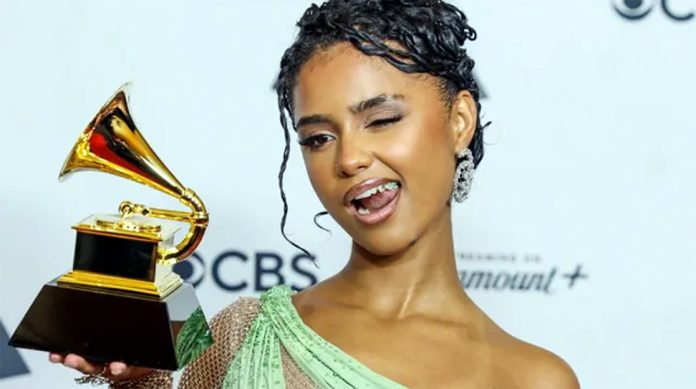The Grammy Awards has a dedicated space for African music, but just a year after the category’s introduction it is already proving contentious.
The Best African Music Performance made its debut with South Africa’s Tyla winning for her hit song Water, a blend of South African amapiano and Afropop.
It was a move welcomed across the industry, especially by African artists.
But the nominations for this year’s award have raised eyebrows, especially with the inclusion of US R&B star Chris Brown.
The 35-year-old has been nominated for his chart-topping single Sensational, which incorporates Afrobeats elements and features guest vocals from Nigerian artists Davido and Lojay.
However, the participation of an American artist in an African music category has sparked some debate.
Should non-African artists be considered in a category meant to showcase African talent?
“Music is about inclusivity. We don’t want to fence people out of genres,” Grammy CEO Harvey Mason Jr tells the BBC.
“If we start deciding who can or can’t make a certain type of music, we lose the essence of creativity.”
The head of the Grammys explains that such cross-fertilisation is expected.
“We’ve seen it with Latin before, we’ve seen it with K-Pop and now you’re starting to see it with Afrobeats and amapiano,” he says.
“We like to honour all music [regardless of] where it comes from or who makes it. If it’s excellent we want to celebrate it.”
Another bone of contention this year is the dominance of Afrobeats, which has its roots in Nigeria and Ghana.
There is a feeling that the Grammys remain too focused on it, to the exclusion of other African music genres, despite calls for inclusivity.
Nigerian music journalist Ayomide Tayo says he understands why Afrobeats is dominating this year’s awards.
“I don’t think Afrobeats is better,” he tells the BBC.
“It’s just that Afrobeats has had over three decades of exposure. We consistently pushed great music, superstars and events that have attracted the world to it,” Lagos-based Tayo explains.
Credit: bbc.com









